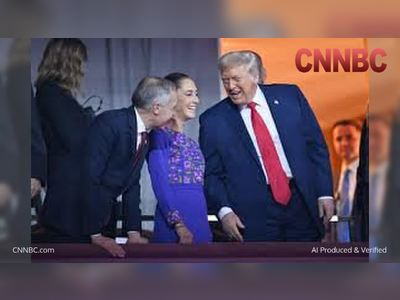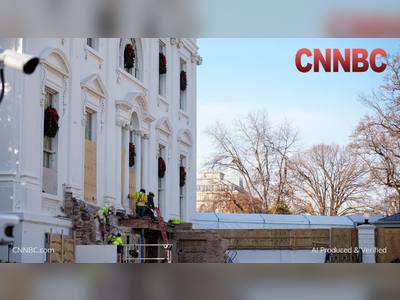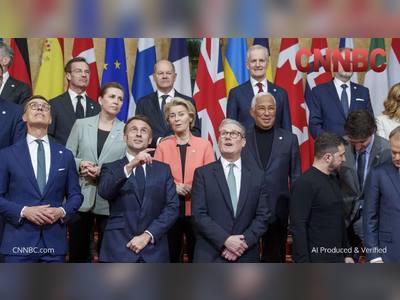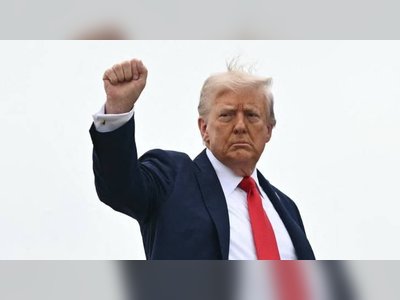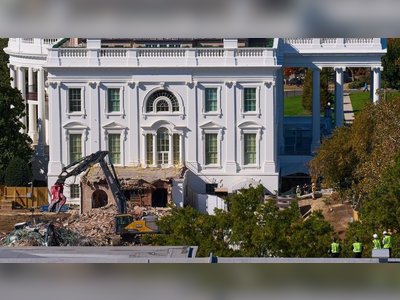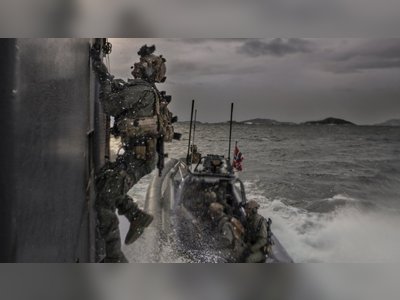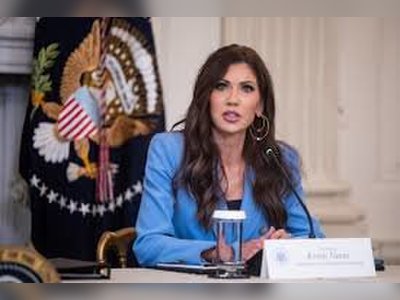President Donald Trump Challenges Nigeria with Military Options Over Alleged Christian Killings
U.S. threatens aid cuts and possible troop deployment unless Nigeria addresses attacks on Christians, while Abuja disputes the narrative and reaffirms sovereignty.
In a dramatic escalation of U.S. pressure on Africa’s most populous nation, President Donald Trump publicly instructed the U.S. Pentagon to prepare for 'possible action' in Nigeria—including the deployment of troops or air strikes—if the Nigerian government fails to stem what he describes as mass killings of Christians.
On November 1, 2025, via the social-media platform Truth Social, President Trump declared that the United States 'will immediately stop all aid and assistance' to Nigeria unless the killings stop, warning that the U.S. 'may very well go into that now disgraced country, guns-a-blazing, to completely wipe out the Islamic terrorists who are committing these horrible atrocities.'
Speaking aboard Air Force One a day later, the President said, 'Could be. I mean, other things. I envisage a lot of things. They’re killing record numbers of Christians in Nigeria. We’re not going to allow that to happen.'
Nigeria has long struggled with insurgencies and sectarian violence, particularly in the Muslim-majority north, where extremist groups such as Boko Haram and Islamic State–West Africa Province operate.
While these attacks have affected both Christians and Muslims, President Trump’s statements focus on the plight of Christian communities and the broader failure of the Nigerian state to protect them.
Under Trump’s directive, Nigeria was re-designated a 'Country of Particular Concern' for religious-freedom violations—a classification previously removed in 2023.
The move reflects a new U.S. posture that ties foreign aid and even potential military action to the protection of religious minorities.
Nigeria’s government under President Bola Tinubu swiftly rejected the claims, calling them 'based on misinformation or faulty data.' Information Minister Mohammed Idris stated that the violence is terrorism-driven, not religiously motivated, noting that over 13,000 militants have been killed and more than 17,000 suspects arrested under current counter-terror operations.
Officials insisted that any U.S. intervention would require Nigeria’s consent and emphasized that the country remains open to cooperation with allies—so long as its sovereignty is respected.
Analysts say the confrontation exposes competing narratives: Washington’s emphasis on religious persecution versus Abuja’s framing of a broader security crisis.
While atrocities against Christians are real, experts warn that portraying Nigeria’s complex conflict as purely religious risks oversimplifying a blend of insurgency, ethnic tension, economic inequality, and weak governance.
President Trump’s warning, however, signals a broader doctrine—one that places religious freedom and moral accountability at the center of U.S. foreign engagement.
The weeks ahead will determine whether his threat translates into policy, and whether Nigeria’s government can demonstrate progress before diplomatic pressure hardens into military or economic action.
On November 1, 2025, via the social-media platform Truth Social, President Trump declared that the United States 'will immediately stop all aid and assistance' to Nigeria unless the killings stop, warning that the U.S. 'may very well go into that now disgraced country, guns-a-blazing, to completely wipe out the Islamic terrorists who are committing these horrible atrocities.'
Speaking aboard Air Force One a day later, the President said, 'Could be. I mean, other things. I envisage a lot of things. They’re killing record numbers of Christians in Nigeria. We’re not going to allow that to happen.'
Nigeria has long struggled with insurgencies and sectarian violence, particularly in the Muslim-majority north, where extremist groups such as Boko Haram and Islamic State–West Africa Province operate.
While these attacks have affected both Christians and Muslims, President Trump’s statements focus on the plight of Christian communities and the broader failure of the Nigerian state to protect them.
Under Trump’s directive, Nigeria was re-designated a 'Country of Particular Concern' for religious-freedom violations—a classification previously removed in 2023.
The move reflects a new U.S. posture that ties foreign aid and even potential military action to the protection of religious minorities.
Nigeria’s government under President Bola Tinubu swiftly rejected the claims, calling them 'based on misinformation or faulty data.' Information Minister Mohammed Idris stated that the violence is terrorism-driven, not religiously motivated, noting that over 13,000 militants have been killed and more than 17,000 suspects arrested under current counter-terror operations.
Officials insisted that any U.S. intervention would require Nigeria’s consent and emphasized that the country remains open to cooperation with allies—so long as its sovereignty is respected.
Analysts say the confrontation exposes competing narratives: Washington’s emphasis on religious persecution versus Abuja’s framing of a broader security crisis.
While atrocities against Christians are real, experts warn that portraying Nigeria’s complex conflict as purely religious risks oversimplifying a blend of insurgency, ethnic tension, economic inequality, and weak governance.
President Trump’s warning, however, signals a broader doctrine—one that places religious freedom and moral accountability at the center of U.S. foreign engagement.
The weeks ahead will determine whether his threat translates into policy, and whether Nigeria’s government can demonstrate progress before diplomatic pressure hardens into military or economic action.

